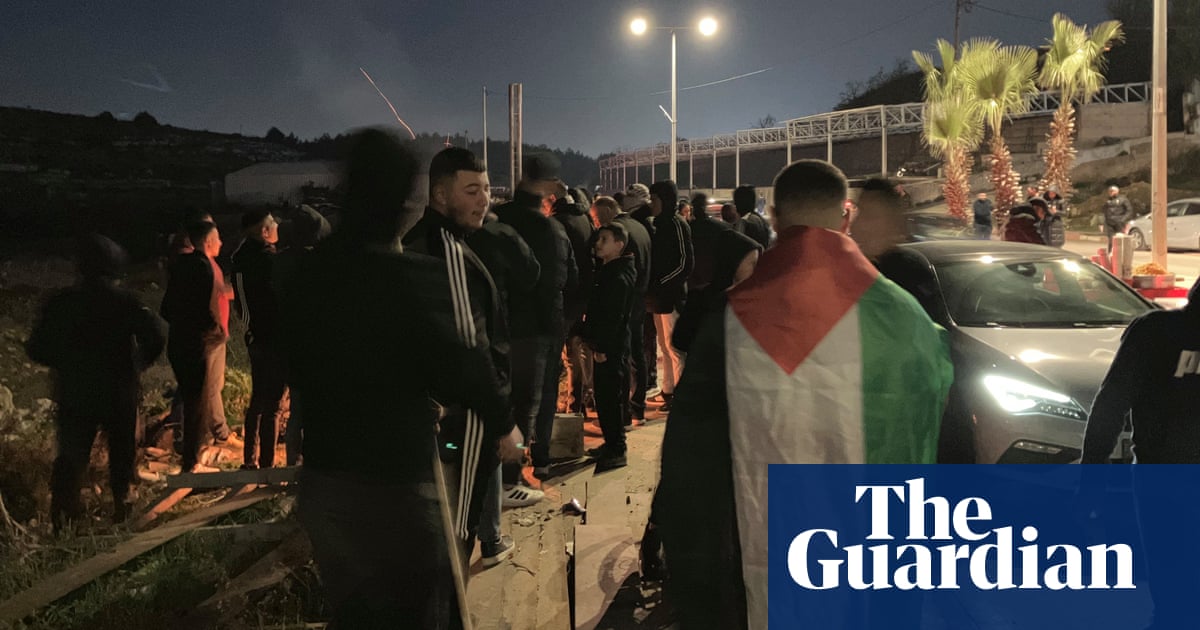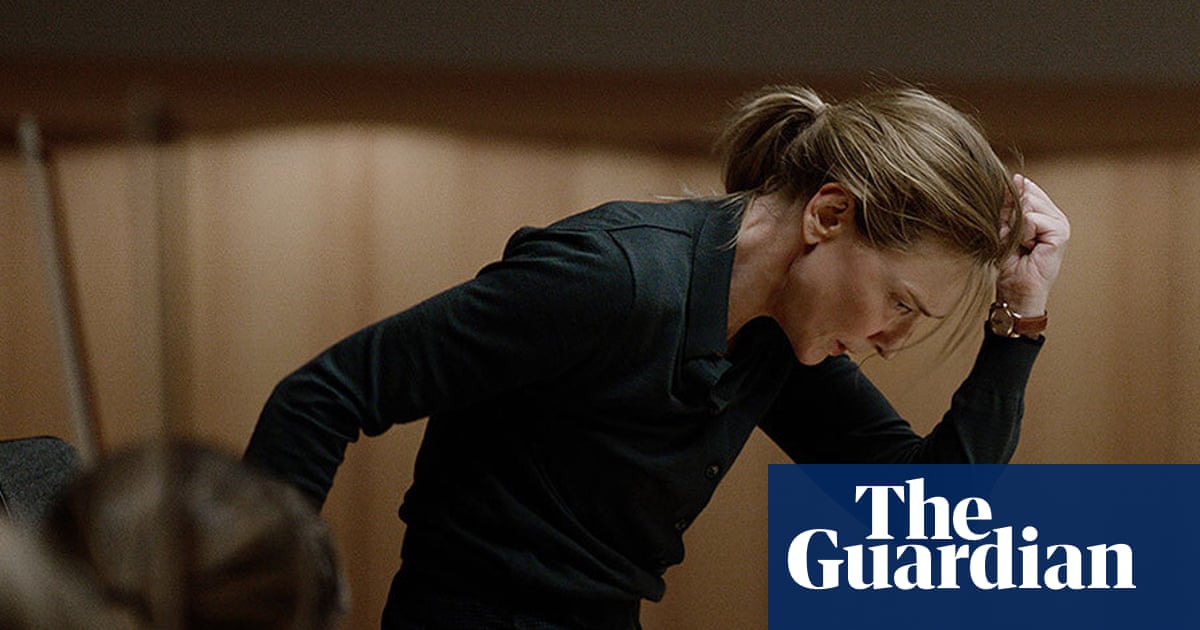The family of Zina Barber, a 24-year-old Palestinian woman held in a jail for more than a year, were preparing for her to be released as part of the Gaza ceasefire deal when a group of Israeli policemen came to their door late on Saturday.
“They raided our house, and seized flags and symbols associated with Palestine,” said her mother, Amal.
The Israel Prison Service said on Friday that it would take measures to prevent any “public displays of joy” by families of Palestinian prisoners released in the deal.
Under the first phase of the deal reached between Israel and Hamas, which is to last 42 days, the militant group has agreed to release 33 hostages including children, women (including female soldiers) and men aged over 50, in exchange for hundreds of Palestinians held in Israeli jails.
On Sunday, 90 prisoners were due to be released in exchange for the three Israeli hostages handed over by Hamas to the Israel Defense Forces (IDF).
Relatives of Palestinian prisoners from East Jerusalem due to be released in exchange for three Israeli hostages held by Hamas in Gaza said that Israeli military personnel had explicitly warned them against speaking to the media. The homes of at least four prisoners in East Jerusalem were reportedly raided by Israeli security forces.
“Sorry, but we can’t talk right now, they raided our house too,” said a family member of a another Palestinian prisoner who prefers not to be identified for fear of repercussions by the Israeli police.
By diminishing the visibility of celebrations among the families of prisoners, Israel appears to be aiming to ensure that the ceasefire does not get interpreted as a victory for Hamas and a defeat for the Israeli prime minister, Benjamin Netanyahu.
But the Israeli warning against the celebrations did not work in the West Bank, where hundreds of people took the streets of Ramallah, Qalandia and Nablus to celebrate the prisoners’ return.
Mothers, fathers, siblings and friends waited in the cold to embrace their loved ones as part of the agreement described by the Palestinian Prisoners’ Society as “the largest collective rescue operation of male and female prisoners since 1985, and the most qualitative and quantitative”. In Ramallah, several of those in the crowd waved Hamas flags.
In the refugee camp of Qalandia, in the West Bank, Osama Shadeh and his family prepared sweets, streamers, and decorated their car with a Palestinian flag and pictures of his daughter Aseel, 17, who was arrested last year and released on Sunday.
“It’s hard to describe the emotion we’re feeling at this moment,” he said. “My daughter was arrested on 7 November when she was protesting against the killing of Palestinian children in Gaza. She was waving a Palestinian flag. Israeli soldiers shot her in the foot and handcuffed her. They accused her of trying to stab the soldiers. The fact that she is being released now means that Israel knew that my daughter had done nothing wrong. Yet they kept a minor in jail for over a year.”
The Israel Prison Service said that two jails, one near Jerusalem and another near the southern city of Ashkelon, had begun preparations for the releases by gathering prisoners to be freed, and that they will first be taken to Ofer prison near Ramallah, where relatives have gathered in the cold, awaiting for their loved ones.
Cars carrying friends and relatives of the prisoners waved Palestinian flags, and a group of boys lit a bonfire against the cold, as the first fireworks lit up the sky at sunset.
“I’m very happy,” said Khawlaha Mahfouz, 53, whose daughter Ayat, 33, from Hebron, was arrested in June 2024 for an attempted stabbing attack. “At the same time, my heart is sad and I don’t feel ready to celebrate with all that is happening in Gaza.”
In the second phase of the ceasefire deal, the remaining living hostages are due to be sent back and a corresponding ratio of Palestinian prisoners will be freed, and Israel will completely withdraw from the territory. The specifics are subject to further negotiations, which are due to start 16 days into the first phase.
The third phase will address the exchange of bodies of deceased hostages and Hamas members, and a reconstruction plan for Gaza will be launched. Arrangements for future governance of the strip remain hazy.
About 100 of the Palestinian prisoners slated for release are serving life sentences for violent attacks on Israelis; others were jailed for lesser offences, including social media posts, or held in administrative detention, which allows for the pre-emptive arrest of individuals based on undisclosed evidence.
According to a copy of the agreement seen by the Guardian, nine ill and wounded Israelis will be released in exchange for 110 Palestinians serving life sentences in Israeli jails.
Men aged over 50 on the list of 33 hostages will be released in return for prisoners serving life sentences at a ratio of 1:3, and 1:27 for other sentences.
According to figures published by the Israeli NGO HaMoked, as of January 2025 there were 10,221 Palestinians in Israeli prisons. About 3,376 of them are held under administrative detention, while 1,886 are classified as “unlawful combatants”, which also allows detention without charge or trial. The Israel Defense Forces and Israeli government say the measures comply with international law.
Palestinians have long alleged that imprisonment is a key element of Israel’s 57-year-old occupation: various estimates suggest that up to 40% of Palestinian men have been arrested at least once in their lives.
The release of Palestinian prisoners was at the centre of a long stalemate during negotiations between Hamas and Israel, which stalled in July last year before being revived ahead of president-elect Donald Trump’s inauguration. Trump had threatened to unleash “hell” on Hamas if the hostages were not released before he begins a second term.
During the negotiations Palestinian officials said that Israel continued to block the release of 10 specific prisoners, including Marwan Barghouti, the popular leader of Fatah’s armed faction, and Ahmad Saadat, the head of the Popular Front for the Liberation of Palestine, who was behind the assassination of the Israeli minister Rehavam Ze’evi in 2001.
To avert a potential impasse in the latest negotiations, it was agreed to defer discussions on the release of the well-known political and military figures until the second phase of the deal.
Article by:Source – Lorenzo Tondo and Sufian Taha in Ramallah
















